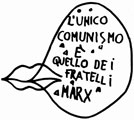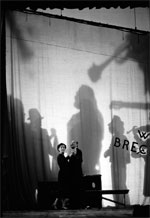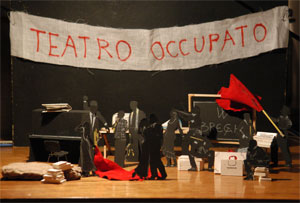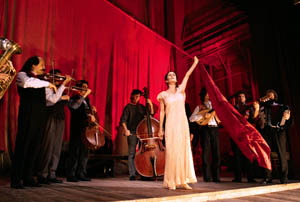Ballata di fine millennio
(Ballad of the Millennium's End)

|
A fascinating show of warnings, wittiness and songs but also an Oratorio of poetry, spirituality and memories, an instructive catalogue of questions, unease and songs full of longing, Ballad of the Millennium's End by Mara Cantoni and Moni Ovadia can be defined as a striking and lyrical Cabaret dealing with the illusions of a century, our century, which coincides with the end of a millennium. |
|
Fast, disheveled, vital, amused. With a touch of
décadence.
|
| and finally... enjoy the Suite! |
|
a show by Mara Cantoni and Moni Ovadia
|
|
|
|
|
The photographs of Ballad are by Maurizio Buscarino |


